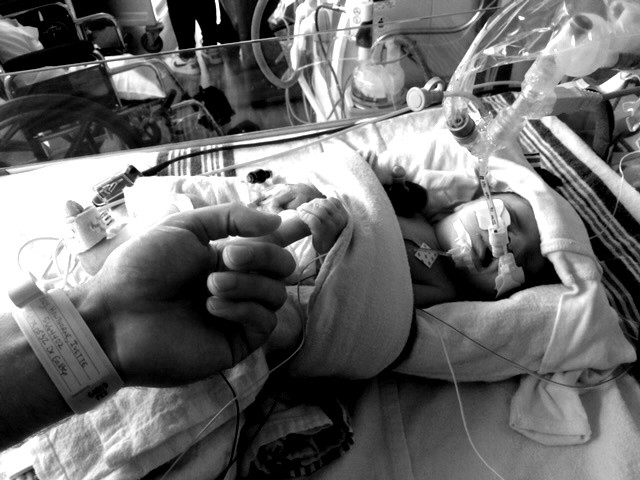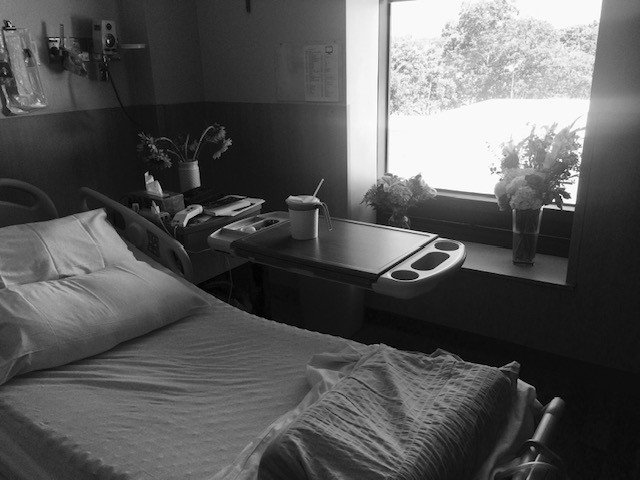We were lucky to catch up with Ivette Hawthorne recently and have shared our conversation below.
Ivette, thanks for taking the time to share your stories with us today Was there a moment in your career that meaningfully altered your trajectory? If so, we’d love to hear the backstory.
My husband and mother-in-law were peering down at me, the floor underneath me hard and cold. Tile. The kitchen floor. It took me a few seconds to piece it together. The baby was crying from the other room. Quiet whispers. They helped me up and led me to the sofa in the living room. I couldn’t speak, but if I could I would’ve told them that I didn’t like the way they were looking at me.
That evening I found myself checking into a residential behavioral health hospital. It all felt very surreal. The orderlies in their white uniforms, the rooms (while an attempt had been made to make them feel less sterile, were still clearly institutional), strangers going through my belongings and cataloging each item, stripping down, checking for drawstrings and shoelaces I might attempt to smuggle in. I need to be here.
Six months earlier my husband and I welcomed our fourth child into the world. We were overjoyed, mostly with relief. It had been a difficult pregnancy, one that put me in the hospital for ten weeks of bedrest. But, the baby had arrived healthier than expected and weighed five pounds despite arriving at thirty-two weeks. One of the biggest babies in the neonatal intensive care unit, our home for the next sixty-eight days.
Bringing the baby home should’ve been a huge relief. Instead, I felt stressed, overwhelmed and completely lost. I had given up my career because the baby had to be fed through a feeding tube and required weekly physical therapy, occupational therapy, and feeding therapy. Skilled nursing for that level of care was basically my salary, and so it was decided.
I know what you’re thinking, looking at it on paper it makes perfect sense. But I was completely blindsided. I’ve lived with anxiety and depression for many years and honestly never put any serious thought into postpartum mood disorders. It’s the baby blues, right? It’s normal. All mothers feel this way at some point. Oh yeah? Well, guess what? They don’t.
It’s been five years since that hospitalization and while it wasn’t a smooth road, it has changed my life for the better. That experience made me grow as a person, helped me rediscover myself, and led me to peer support. I first heard about peer support from another patient during my in-patient stay. The concept of people with lived experience around mental health helping others in similar situations intrigued me immediately. I decided right then and there that I would devote myself to getting well, and once I reached the one-year required recovery mark, would apply to become certified as a mental health peer specialist (MHPS).
While I still freelance as a makeup artist and thoroughly enjoy the creativity that comes with that, I feel that I have been called to make a deeper impact. Earlier this year, I completed my initial certification to become an MHPS and am currently completing my clinical hours with a non-profit organization in Austin, TX. My dream is to work with women of all ages and to advocate for the very specific needs and challenges we face. Every time a woman sits in my makeup chair she has a story to tell. I’ve heard it all – from the outrageous to downright heartbreaking. For years I’ve listened to these stories and wished that my makeup brushes could do more than cover up a few blemishes and skin imperfections. Now finally, I feel as if I’m able to do that.
Working in peer support is incredibly rewarding. I get to share my experiences with trauma and mental health diagnoses, along with the skills and tools I’ve learned to inspire hope and transform the lives of others. No woman or mother should ever face what I have faced alone. One day I hope to open a peer center where all women can come to feel safe, heard, and supported because women deserve better.



As always, we appreciate you sharing your insights and we’ve got a few more questions for you, but before we get to all of that can you take a minute to introduce yourself and give our readers some of your back background and context?
In terms of makeup artistry, I’ve been doing that for almost two decades. I started my career with MAC in New York city straight out of fashion school and worked in the fashion and beauty industries for several years before freelancing. I now focus mostly on beauty makeup – bridal, portrait, special events. I also teach classes because I believe in empowering women. It’s also important for me to help each client discover their beauty and it’s more than just skin deep.
That desire is what led me to pursue my other passion – working with people and making a difference. I’m a certified mental health peer specialist now and work with Austin Mental Health Community, a local nonprofit. We provide support groups, individual peer mentoring programs, and so much more! I’m really passionate about helping to end the stigma around mental health and seeking help when you need it. With September being National Suicide Prevention Month, I’m even more keenly aware of the impact organizations such as ours make in our communities. We all need support sometimes, don’t be afraid to ask… more often than not others around you feel the same way. That’s what I love about peer support – people like you and me, who have gone through difficult times, can show a way through depression, anxiety, addiction, or whatever the case may be, and inspire hope for a better way.



If you could go back in time, do you think you would have chosen a different profession or specialty?
Ironically, in high school, I was torn between going into the fashion industry or becoming an art therapist. I was eighteen – I took the glamorous option! I’ve loved being in the fashion and beauty industries, but it also has a darker side. That, I think, is what pushed me to want to go below the surface.
I don’t know that I’d necessarily make the other choice if I had a do-over, because this has been valuable in its own right, but I do sometimes wish I had come to peer support sooner. Not only do I get to help others, make meaningful connection, and feel purposeful each day, it has and continues to support my own wellness. It’s incredibly refreshing to be part of a team that truly supports work/life balance and where “taking a mental health day” isn’t just a catchy incentive but a core value.
Other than training/knowledge, what do you think is most helpful for succeeding in your field?
You have to genuinely like people. Empathy is also key, so few people really understand what that means. Brené Brown has this wonderful clip on “Empathy vs Sympathy” that illustrates it wonderfully. I’ve also heard it referred to as toxic positivity – the silver lining folks. True empathy is being able to hold space, really listen, while someone unpacks their feelings. Don’t try to fix it, don’t try to “look on the bright side”, sit there with them, in that feeling, and just be. THAT is powerful.
Contact Info:
- Website: https://austinmhc.org
- Instagram: ivettekh_mua
Image Credits
Robin Spiotto Erin Hyatt Liz Prontzous Andrew Hite


